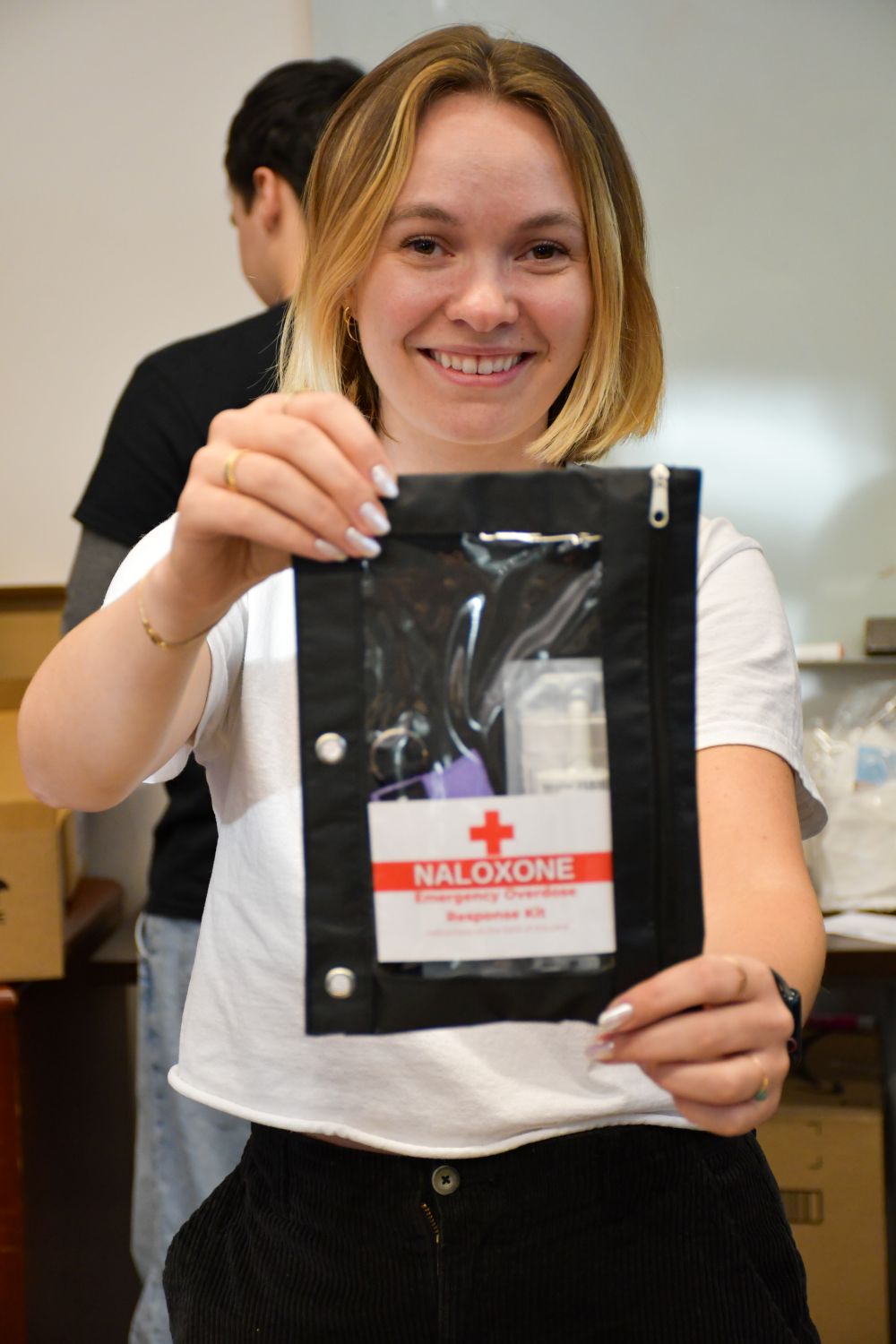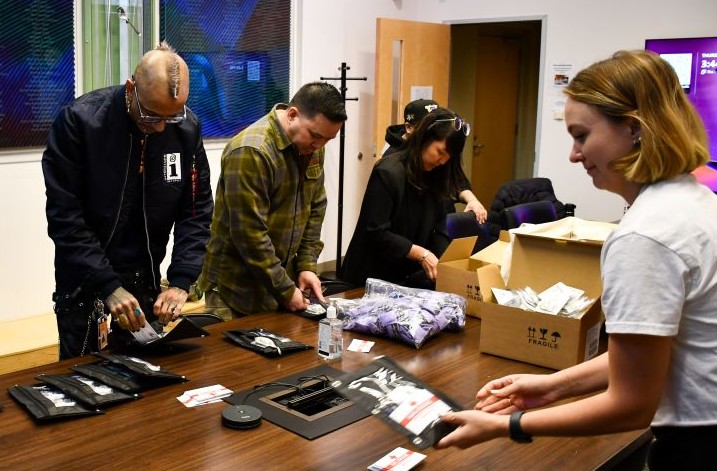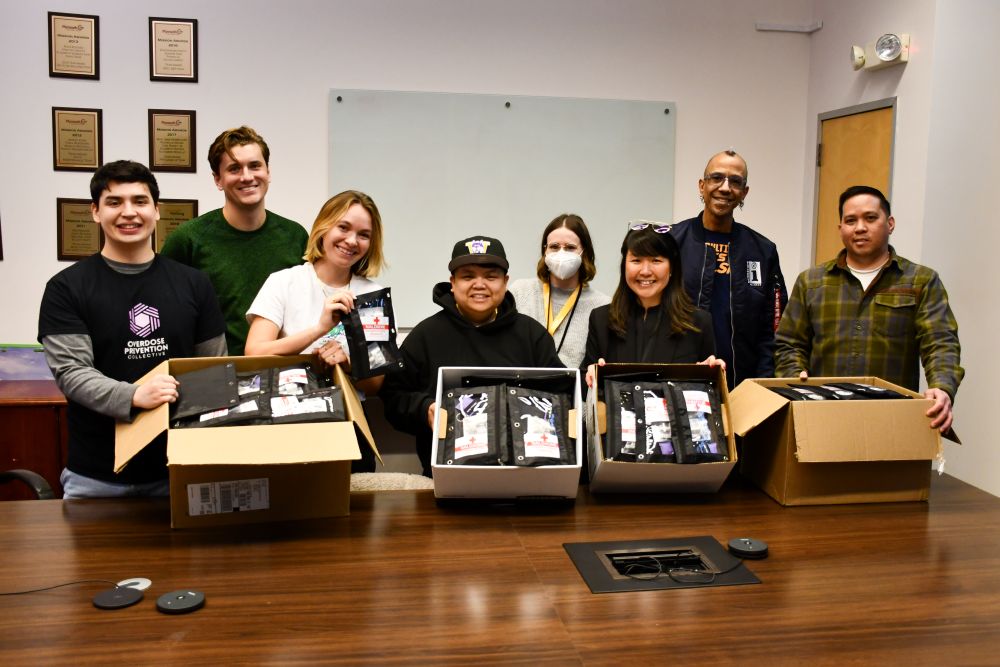Earlier this year, Plymouth Housing staff worked with the Overdose Prevention Collective (OPC) to assemble more than 150 overdose prevention kits. Led by Astro Pittman, Lead Behavioral Health Case Manager at Plymouth, the group packed black zipper pouches with doses of naloxone, CPR mouth shields, and directions for use. Naloxone, also known as Narcan, is a medication that can quickly reverse an opioid overdose.
“Our first and main goal is to save lives,” Pittman said. “These kits will assist us in meeting our residents where they are at, and preventing fatal overdoses at all of Plymouth’s sites, by facilitating greater ease of access to the lifesaving medication naloxone.”
This hands-on project is an example of harm reduction in action. At Plymouth, our goal is to help residents find stability and improve their quality of life. Harm reduction is one of the ways we do that — a practical, research-backed approach that reduces the risks linked to drug use, like overdose or infection.

OPC staff displays a finished overdose prevention kit
Rather than ignoring or punishing substance use, harm reduction meets people where they are and supports them in staying safer and healthier — without requiring abstinence or sobriety first. It’s about progress, not perfection. By assembling overdose prevention kits, our staff are not only helping to save lives; they’re showing what it means to lead with dignity, compassion, and respect.
Plymouth does this work in partnership with OPC, a local nonprofit dedicated to ending drug-related overdoses through public education and training. OPC’s Executive Director Emily Dalgo said: “Our hope is that having naloxone, CPR face shields, and clear instructions on hand will give both residents and staff the tools they need to respond quickly and confidently in an overdose emergency.”

Pittman (left) and Plymouth staff work with OPC to pack supply kits
Each kit also includes a brief note explaining how people will not be penalized for calling 911 to respond to an overdose, even if the person calling for help is using substances themselves. This stems from a policy called the Good Samaritan Law, whose goal is reducing hesitation in seeking emergency assistance.
Plymouth residents have expressed gratitude to site staff for empowering them with the tools they need to support safer use within their communities. Many have also begun educating their neighbors and guests and encouraging them to get their own kits. In the coming months, residents will also receive trainings on how to detect the signs of a potential overdose and assist accordingly.
One resident, Tommy, said that having Naloxone readily available has enabled him to save multiple people’s lives. “This sometimes really is about the difference between having it with you or having to waste precious moments looking for it. I’m so glad I have these; I’ve used them several times and given a bunch of them out, too.”

Preparing to save lives is a team effort!
Healing from the trauma of homelessness is a journey, not a destination. Managing challenges like mental health and substance use takes time. Our staff dedicate time to building rapport with residents and help them to build skills as they work at their individual pace and ability.
“By focusing on reducing harm, we are able to implement realistic strategies that help people stay alive, lead to improved health and recovery outcomes, cost savings, and stronger communities,” Pittman said.
Dalgo agrees. “It’s meaningful to us to work alongside organizations that care deeply about the safety and well-being of their communities, and Plymouth has proven to be such a great partner in that regard,” she said.